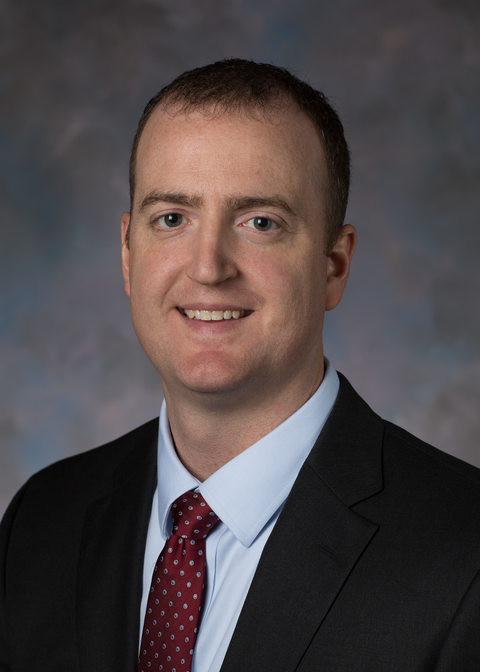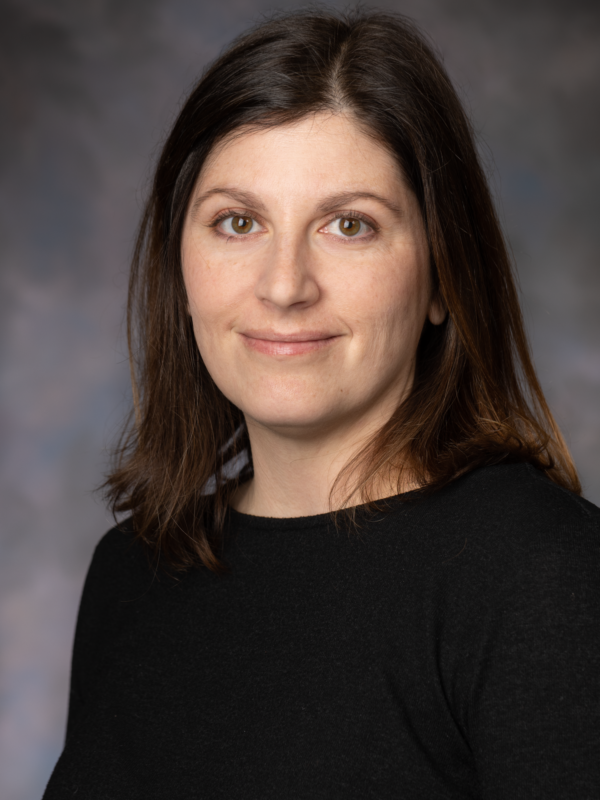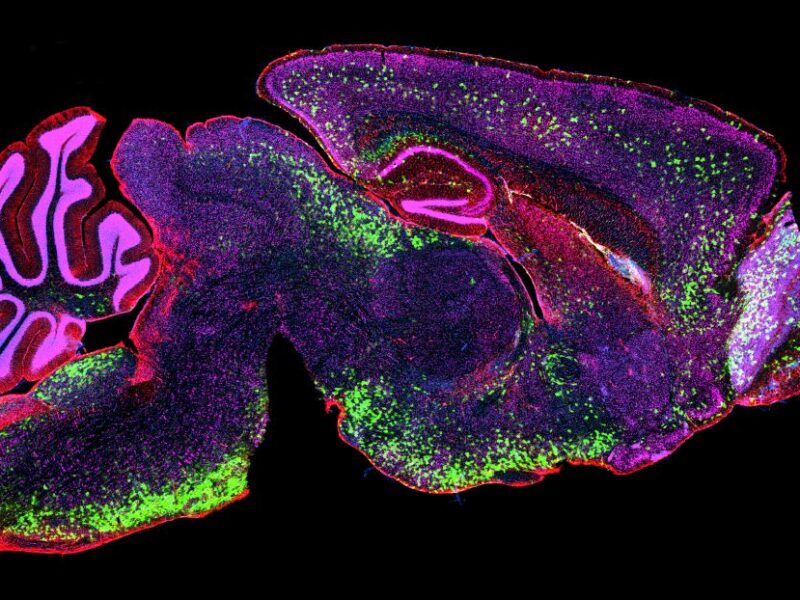Accelerating Advances in Epilepsy Surgery
Accelerating Advances in Epilepsy Surgery https://pediatricsnationwide.org/wp-content/uploads/2024/04/AdobeStock_141694591-1024x683.jpg 1024 683 Abbie Miller Abbie Miller https://pediatricsnationwide.org/wp-content/uploads/2023/05/051023BT016-Abbie-Crop.jpg- April 19, 2024
- Abbie Miller

One program is bringing together clinical care, surgery and research to create a brighter future for children with intractable epilepsy.
Childhood-onset epilepsy affects 1% of children worldwide.
Up to a third of patients with epilepsy will have medically refractory epilepsy, continuing to have seizures despite using two or more antiseizure medications.
Options for this group include intracranial epilepsy surgery, Vagus nerve stimulator (VNS) insertion, ketogenic diet and drug trials. It is increasingly recognized that epilepsy surgery can dramatically improve the quality of life for children with intractable epilepsy. In some cases, it is the only potentially curative option.
The Epilepsy Surgery Program at Nationwide Children’s is among the first group of programs to earn Germain Family Accelerator Program funding. The Accelerator Program was established by the Germain Family Foundation and is managed by Nationwide Children’s research administration.
“Accelerator funding is awarded to established programs with successful track records in clinical care and research,” says Dennis Durbin, MD, MSCE, president of the Abigail Wexner Research Institute at Nationwide Children’s. “The Accelerator designation was created through a generous gift from the Germain Family Foundation, and we are proud to see our programs take advantage of this opportunity.”
Practical Improvements for Access
Research suggests that early surgical intervention can boost developmental outcomes and even cure young children with intractable epilepsy, but low referral rates and other barriers result in limited access for some.
In 2022, the Epilepsy Surgery Program at Nationwide Children’s had eight beds in the Epilepsy Monitoring Unit, limiting the number of children who could be tested. In 2023, the addition of just two more beds increased the capacity. In the past year, they were able to increase testing from 103 in 2022 to 140 patients.
“Increasing capacity to test children who may benefit from epilepsy surgery is the first step to closing the treatment gap for children with intractable epilepsy,” says Adam Ostendorf, MD, medical director of the Epilepsy Surgery Program and associate division chief for research at Nationwide Children’s. “Getting to 10 beds is just the first step. We are already planning how our capacity can continue to grow.”
In addition to creating space for increased testing, the team is developing research to understand differences in surgical access based on social determinants of health.
“On average, patients wait 22 years for epilepsy surgery,” says Ammar Shaikhouni, MD, PhD, a pediatric neurosurgeon at Nationwide Children’s. “And non-white children are four times less likely to receive surgery. We need to find out why this is. We know that testing is similar across race and ethnicity, so we’re partnering with others to do focus group research to find out why there’s such a difference among people who get epilepsy surgery.”
Research to Understand Causes of Epilepsy
“The causes of epilepsy are incredibly diverse and remain a mystery in more than half of people with epilepsy,” says Dr. Ostendorf.
Neurologists and neurosurgeons are collaborating with experts in the Steve and Cindy Rasmussen Institute for Genomic Medicine to identify mutations that cause epilepsy. The research, supported by more than $3 million in National Institutes of Health funding, has already led to five publications and the discovery of a novel way some seizure-causing mutations are inherited, detailed in Nature Genetics.
“We were motivated to study the genetic causes of drug-resistant epilepsy so future research might be able to develop more effective treatments,” says Tracy Bedrosian, PhD, senior author of the Nature Genetics paper, principal investigator in the Institute for Genomic Medicine and co-leader of the Epilepsy Surgery Accelerator Program at Nationwide Children’s.
The study was based on samples collected during surgery at Nationwide Children’s. Now, the team is establishing a multicenter protocol in the existing Pediatric Epilepsy Research Consortium. Through the expansion efforts, they’ve sequenced more than 100 patients to date.
“Every surgery is an opportunity to identify mutations that cause epilepsy,” says Dr. Shaikhouni, who is also an assistant professor of neurological surgery at The Ohio State University College of Medicine. “Collaboration with other epilepsy centers is critical to take our research further. More patients mean more data for faster discovery.”
Future of Epilepsy Surgery
In addition to learning from every surgery and every sample, the team has established a study utilizing massive amounts of electroencephalogram (EEG) data to identify children who may benefit most from epilepsy surgery.
In collaboration with the newly established Office of Data Science at Nationwide Children’s, Dr. Shaikhouni and his collaborators are unleashing the power of data science on more than a terabyte of EEG recording data.
This work, presented at the American Epilepsy Society meeting in 2023 and the American Society for Pediatric Neurosurgery meeting in 2024 makes potentially curative epilepsy surgery more than a last resort.
“So often, we go through years of trial and error with medications, testing and frustration for families, only to arrive at surgery,” says Dr. Shaikhouni. “But the reality is, for many of these children, that surgery is curative. How much better could they be served if we could identify the ones most likely to benefit the most from surgery and fast-track them to a potentially curative solution.”
This article also appears in the Spring/Summer 2024 print issue. Download the full issue.
Image credits: Adobe Stock (header); Nationwide Children’s (portraits)
About the author
Abbie (Roth) Miller, MWC, is a passionate communicator of science. As the manager, medical and science content, at Nationwide Children’s Hospital, she shares stories about innovative research and discovery with audiences ranging from parents to preeminent researchers and leaders. Before coming to Nationwide Children’s, Abbie used her communication skills to engage audiences with a wide variety of science topics. She is a Medical Writer Certified®, credentialed by the American Medical Writers Association.
-
Abbie Millerhttps://pediatricsnationwide.org/author/abbie-miller/
-
Abbie Millerhttps://pediatricsnationwide.org/author/abbie-miller/
-
Abbie Millerhttps://pediatricsnationwide.org/author/abbie-miller/
-
Abbie Millerhttps://pediatricsnationwide.org/author/abbie-miller/
- Posted In:
- Clinical Updates
- Features
- Research










